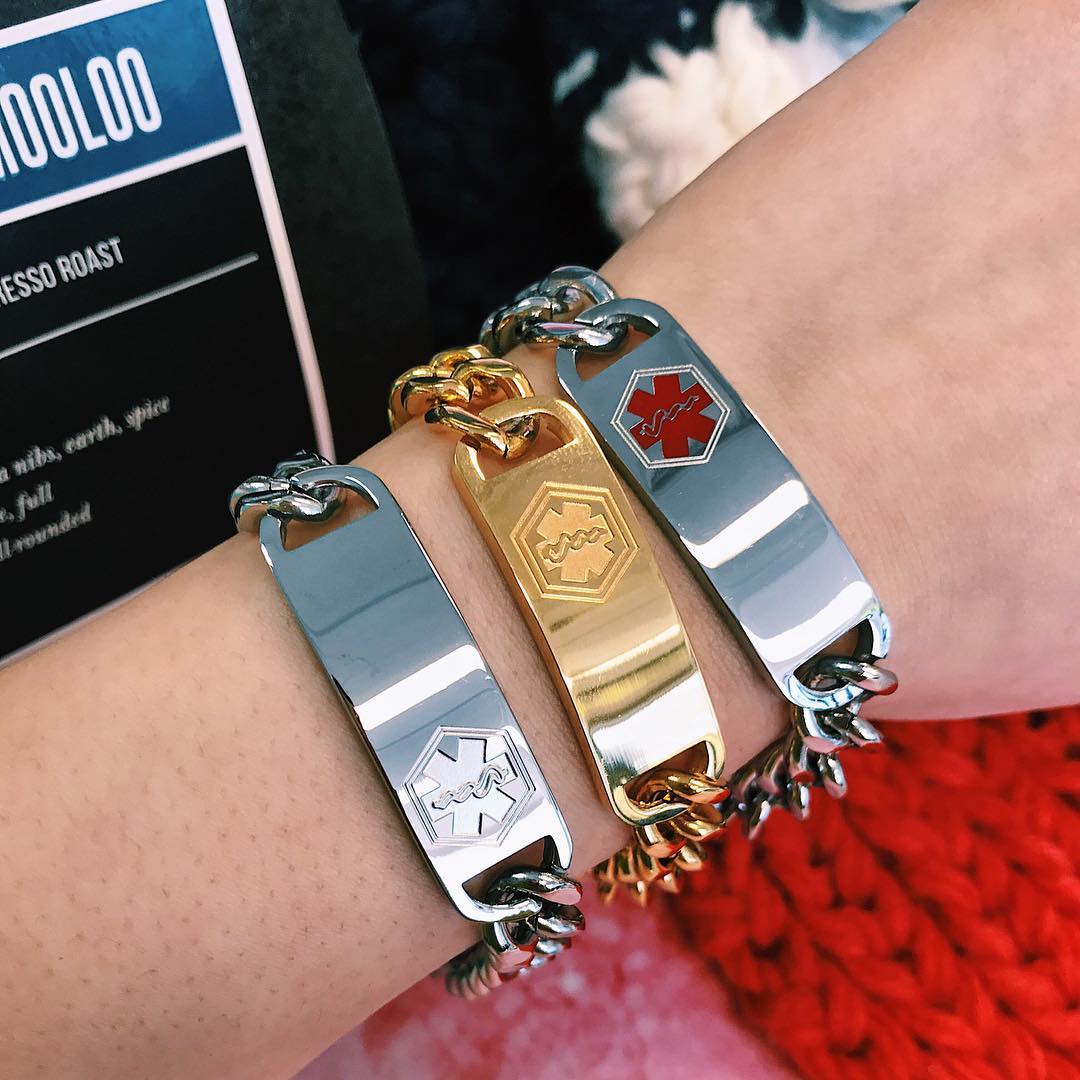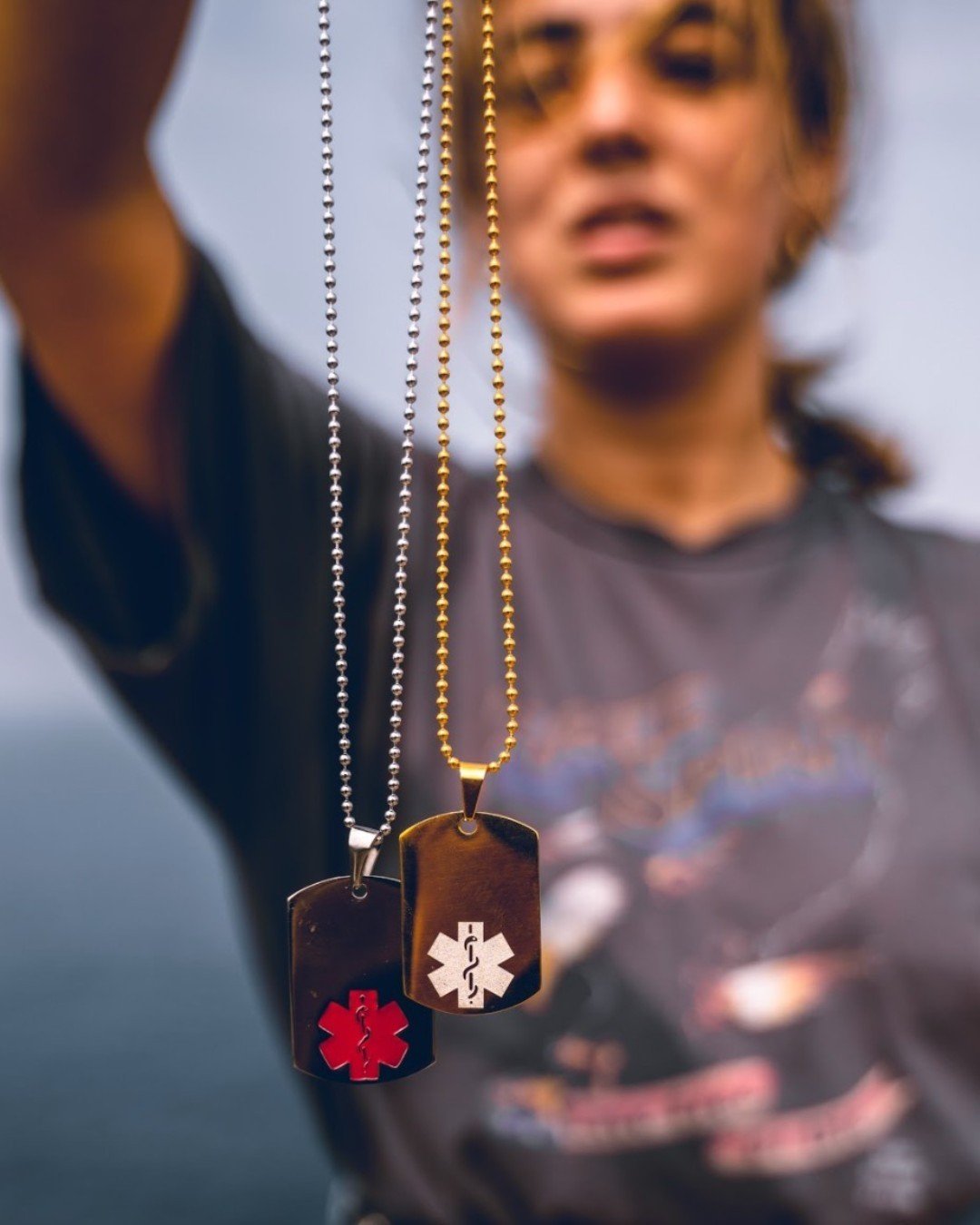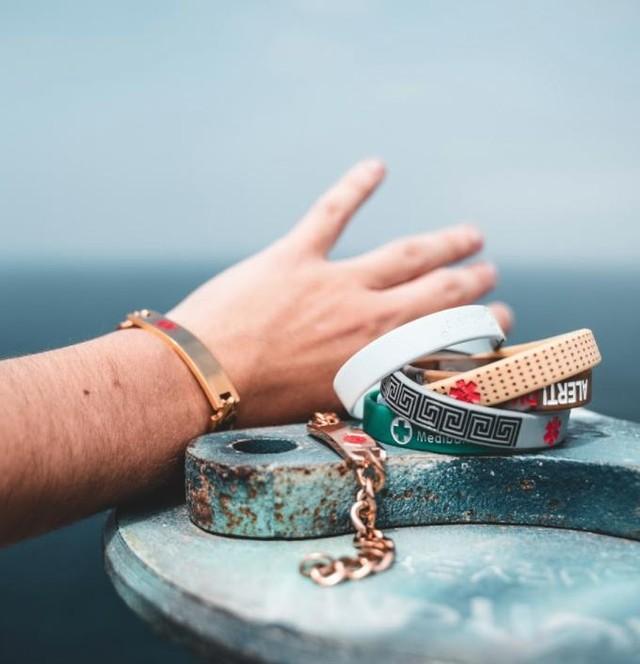What to Engrave on a Medical Alert ID Bracelet or Necklace?
95% of emergency responders stated to look for a medical bracelet during emergency cases in order to identify patient history. The first place emergency responders generally look for a medical ID is on the wrist. Most responders will then check for a medical ID necklace.
It's best to have a medical bracelet as these tend to be more easily accessible in an emergency. And it is generally the first place emergency responders will check. But a medical ID necklace is just as helpful if you prefer not to wear anything around your wrists on a daily basis.
Medical bracelet companies are able to engrave your medical information onto a bracelet. Hence, a medial pro can easily identify your health condition in an emergency. This small investment can potentially save your life in an emergency situation.
Why Engrave Your Medical Bracelet or Necklace?
Medical bracelets, necklaces, and other wearable technology are a growing industry with predictions of continued growth. The trend toward wearable medical identification and aids is likely due to the benefits associated with them. With more than 139 million emergency room visits clocked each year the idea of having your medical info easily available is comforting.
Having an engraved medical bracelet can:
- Eliminate hospital trips
- Prevents escalation of emergency situations
- Result in earlier detection and quicker diagnosis
- Result in more effective treatments being administered
Custom Engravings Versus General Engravings
Every individual is different, which is why they create custom-engraved medical ID bracelets. While generic options are available to let emergency responders know of general medical concerns such as being diabetic, it doesn't give the responder the entire picture.
With custom ID bracelets you can share a wealth of medical information in a small space. For example, you may be diabetic but allergic to a medication commonly used to treat diabetic patients. Without a custom medical ID bracelet, your emergency responder wouldn't know to not treat you as they normally would a diabetic patient.
Info Should Be Engraved on a Medical Bracelet or Necklace?

If you're stuck on deciding what info to include on your bracelet, start with considering the most prominent medical conditions you have. These conditions, medication, or allergy will likely be the reason you decided to get a medical bracelet in the first place.
Food and Drug Allergies
Something as seemingly simple as a peanut allergy should be included on a medical bracelet, especially if it's a severe allergy. Notifying medical professionals of food and drug allergies can help them create an environment that is safe for you to be treated in.
Medical ID jewelry first started in 1953 in the United States after a child had an almost fatal reaction to a tetanus antitoxin. Having a medical bracelet that identifies your known food and drug allergies can assist a doctor in identifying anaphylactic shock as well as preventing it when creating a treatment plan. This means quicker, and potentially life-saving, treatment for you.
Medications You Take
Any medications you regularly take should be engraved on your medical bracelet. There's a reason you are regularly asked what medication you are taking when going to any medical appointment. Different medications don't play nicely with others.
Doctors, responders need to determine medications based on potential interactions, side effects, and risks of a patient. If you're unconscious and have no family to speak with your doctor, your medical ID bracelet can do the talking for you.
Emergency Contact Information
Including an emergency contact number can help emergency responders get in contact with a family member or closed friend. You can include the abbreviation ICE for 'In Case of Emergency' to notify the emergency responder that the number is for your emergency contact.
Common emergency contacts to include on your ID bracelet include:
- Spouse
- Adult child
- Your parents
- Another close friend or relative
Known Conditions
Listing any known conditions on your medical bracelet can help your doctor make the best medical decisions for you. Different conditions may change the way you're treated and the medication given.
You should also include any special treatment considerations, such as a history of breast cancer. Medical history can severely change the way your doctor would otherwise treat an illness or ailment. Giving your medical providers as much history as possible can potentially save your life.
Other Considerations When Having Your Medical Bracelet or Necklace Made

You'll want to ask your primary physician what they recommend including on your medical ID bracelet. Since they treat you regularly, they will know the most important info another doctor would need in an emergency.
You should also consider the following before ordering your bracelet:
- Spell checking conditions, medications, and allergies to ensure correctness
- Ordering an accompanying expandable wallet card with additional and secondary info
- Whether you'd like to include your name or exclude it depending on the amount of room available
Should You Include Your Name on Your Medical ID Bracelet or Necklace?
Including your name on your medical bracelet can be helpful to emergency responders. Especially who want to check your level of understanding after suspected trauma. However, if you're picking between including your name and including a drug or food allergy, the name is most likely less important info to an emergency responder.
Tips For Fitting Tight Spaces
If you have a lot of information but you're on a space budget try using abbreviations. Check to ensure you are using the correct abbreviation. The bracelet is little helpful if a medical provider is unable to identify pre-existing conditions noted on your bracelet.
If you don't want to use abbreviations, you can alert the person viewing your bracelet by a wallet card with more details on your medical history. The worry here is, if you're ever in a case where you don't have your wallet nearby then the wallet card will be useless.
Keeping Yourself Protected With a Medical Bracelet or Necklace
Those with a medical condition can engrave their medical info on a bracelet or necklace. Therefore, in an urgent case, the responders will have easy access to their pertinent medical information. It's better to invest in a medical ID bracelet in advance rather than wait until after a life-changing emergency situation takes place.
Check out our available medical bracelet options to find a style that fits your preferences and needs.


Looking for codes or what to put on my medical bracelet,
Small space
Regards Megan